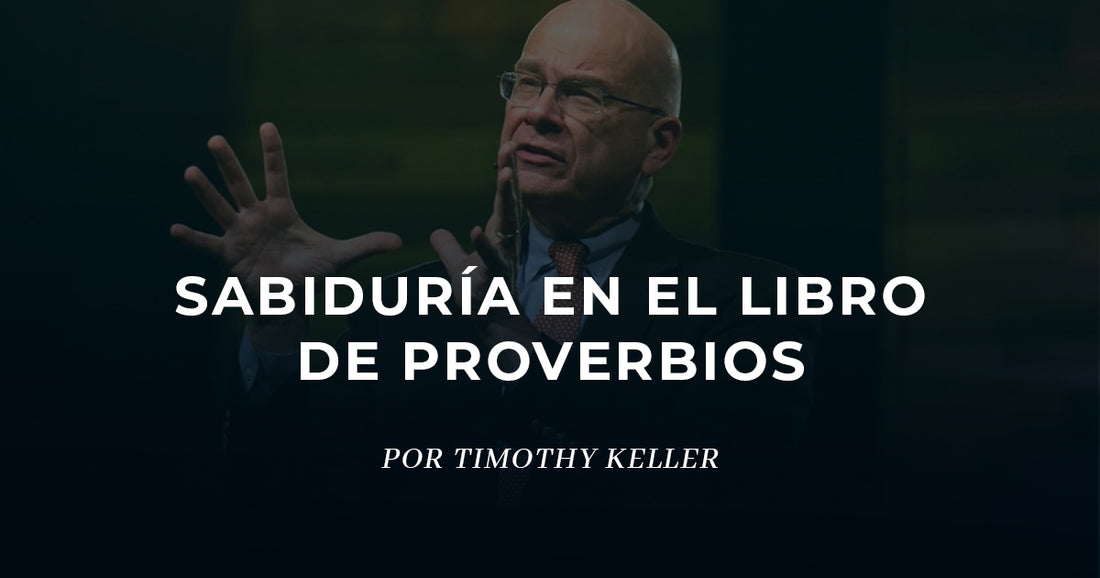
4 benefits of wisdom according to the book of Proverbs
Share
Wisdom was with God when He laid the foundations of the world. The New Testament teaches that the agent of creation was Jesus, the eternal Word and Wisdom of God (John 1:1-14, Hebrews 1:1-4) .
Because the Bible is the Word of our Creator, it is the “owner's manual” of our soul. The things He commands are the same things we were created for. So we will gain divine wisdom when we relate to God not only as a divine being in general, but as our Creator. But if Jesus is the wisdom of God, then to be wise we must also understand the gospel (1 Corinthians 1:24). The logic of the gospel—that you are a sinner and, at the same time , an unconditionally loved child of God—provides a unique combination of humility and confidence that makes you wise in a way nothing else can. Biblical wisdom, then, takes us back to the very foundations of the earth . The only wisdom that works in daily life is that same Wisdom that created and will redeem the world.
Here are four benefits of obtaining wisdom:
1. THE JOY OF WISDOM
[Wisdom speaks:] “There I was, affirming His work. Day after day I was filled with joy, I always enjoyed being in His presence; I rejoiced in the world He created; “I took delight in the human race!” (Proverbs 8:30-31).
The Father and the Son delighted in the world they made and in us. We are able to see the beauty of His creation when things are correctly related to each other. That's why we believe that an arch is more beautiful than a field of rocks, and that love is more beautiful than hate. The more we discern how the parts of a piece of music or a flower fit together, the more we delight in music and flowers, not for what they can do for us, but for what they are: part of God's creation. Wisdom is essentially about discerning and forming right relationships and rejoicing in them.
God created us simply for the joy and love of it. He does not love us for what he can get from us, but for who we are. So the greatest wisdom is to love God simply for who He is and value human beings not for what we can get from them, but because they reflect the image of our Creator (Genesis 1:26).
“ The greatest wisdom is to love God for who He is. ”
___________
2. THE BANQUET OF WISDOM
He sent his maidens, and now he cries from the top of the city. “Come with me, the inexperienced!” he says to those lacking in judgment. Come, enjoy my bread and drink the wine I have mixed. Leave your foolishness, and you will live; They will walk in the path of discernment” (Proverbs 9:3-6) .
Wisdom calls us to find the way to her house, where a banquet awaits us. Good food represents the desires and appetites of our hearts. “Over time we grow in wisdom or foolishness depending on what fundamental loves and commitments drive us.” We cannot overcome work addiction if we love money and status too much. We cannot overcome bitterness or slander if we love our reputation too much. It is not just about willpower, but a reordering of our desires that leads to wisdom.
The path of wisdom is not characterized by quick fixes or drastic changes. It is a path of arduous training and discipline. But train your heart, not just your mind and your will. Don't just believe in the goodness of God; experience it through worship and prayer. Christians know that the ultimate banquet for the soul will be the wedding supper of the Lamb (Revelation 19:6-9), where Jesus, the Lord of the banquet, will fully satisfy us, giving us the “best wine” of His saving love (John 2:1-11). Even the little He allows us to taste now will calm our restlessness and make us wise. “Mount Zion drops a thousand sacred sweets [even] before we reach the heavenly fields and walk the golden streets.”
“ The path of wisdom is not characterized by quick solutions or drastic changes. It is a path of arduous training and discipline. ”
___________
3. THE PROGRESS OF WISDOM
He who corrects the mocker earns himself insults; He who rebukes the wicked earns his contempt. Do not rebuke the insolent, lest he end up hating you; rebuke the wise, and he will love you. Instruct the wise, and he will become wiser; Teach the righteous, and he will increase in knowledge (Proverbs 9:7-9).
Life rebukes us through the hard blows of trials and problems, which reveal our weaknesses and follies. Friends help us grow through the love of correction . These are the two versions of the primary teaching method of wisdom: “retribution.”
The further you go down the path toward foolishness, the more you interpret all events as supporting what you always believed. And when things go wrong, you blame others and circumstances for your problems. This hardens your heart instead of softening it, and makes you less open to advice. Instruct the wise and he will be wiser , but try to say something to the mocker and he will be worse than he was before. In the New Testament, Jesus expounded this principle. “To him who has, more will be given” (Matthew 13:12-16). The more wisdom you have, the more wisdom you will gain at every turn of life's path. The less wisdom you have, the less you will learn. So learn from your mistakes and criticism, whatever the cost.
4. THE FELLOWSHIP OF WISDOM
If you are wise, your reward will be your wisdom; If you are insolent, only you will suffer (Proverbs 9:12).
Ancient wisdom taught that the only way to prosper as a person was to put the needs of your family and community above your personal interests. Our modern culture rejects this completely. We are told to “be true to ourselves,” to decide who we want to be, and then demand that our community and family recognize and respect that, regardless of its impact on relationships. Today we sacrifice the good of the group for the absolute freedom of the individual. The result is a growing number of people who feel disconnected and alone.
Mockers laugh at the values and beliefs of any community. Therefore, they have no real friends and in the end they suffer alone . Christians consider neither the will of the individual nor the will of the community to be absolute, but only the will of God. When we believe the gospel, the barriers of pride that divide us are torn down (Ephesians 2:14-16) and the lonely gain a family (Psalm 68:6, John 1:12-13). Salvation leads to deeper and deeper relationships, but sin leads to loneliness.
_________________________
This article was adapted from a portion of the book God's Wisdom for Navigating Life , published by Poiema Publications . You can download a free sample by visiting this link .
_________________________
Page 32

